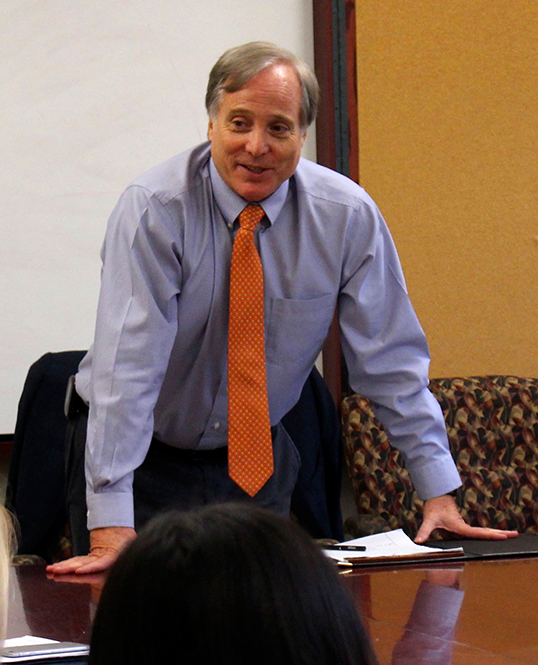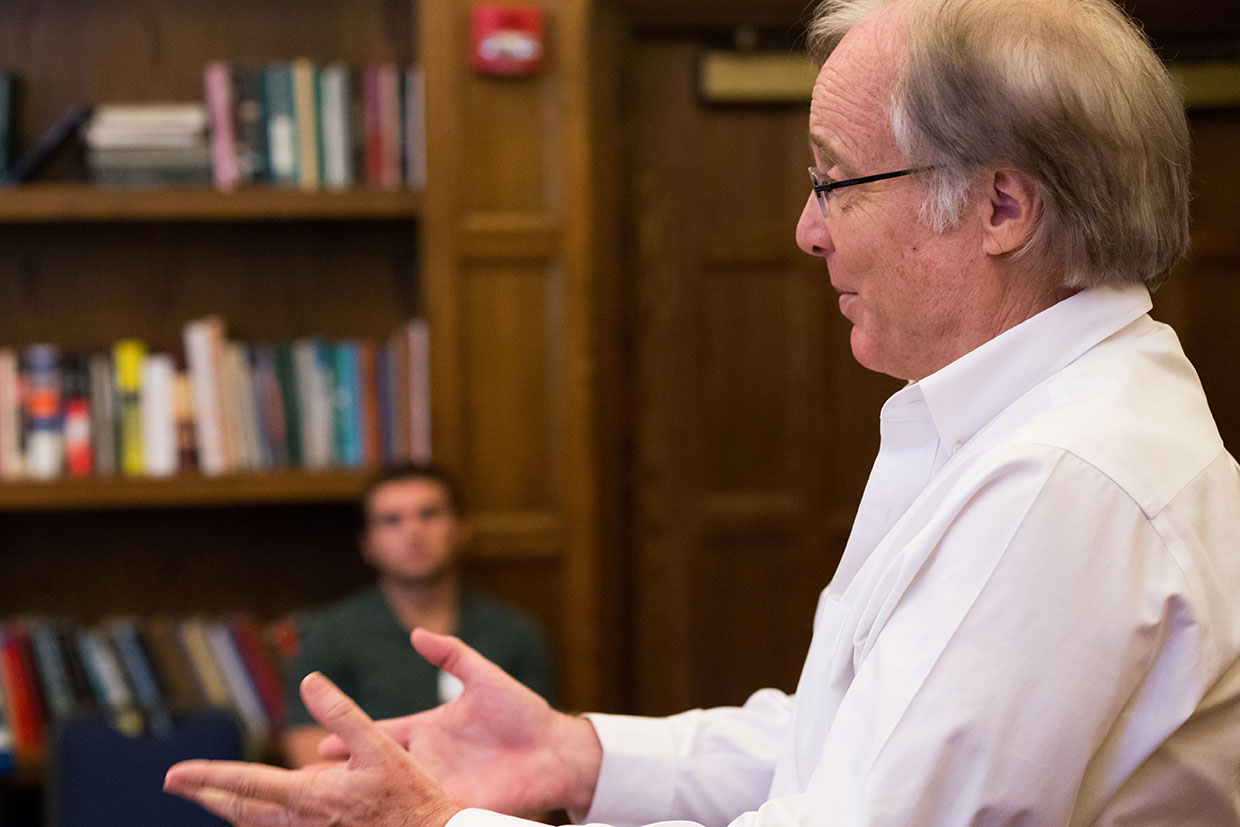Career Diplomat
As a member of the United States Foreign Service for 25 years, Dennis Hays ’76 served in Africa, the Caribbean, and South America. During three of these years, he worked as a presidential advance agent, organizing presidential and vice presidential trips to everywhere from China to Zimbabwe to Panama. In 1996, he was appointed as the U.S. Ambassador to Suriname on the northeastern coast of South America. Hays says its most rewarding aspect was that “everybody in the country wanted to talk to me, they wanted to tell me their story, they wanted to show me their farm, their factory, their fishing boat, their ministry. They had something, a message that they felt was important to convey to me because I represented the United States of America.”
 Dennis Hays ’76 says his liberal arts education has served him well. Amanda Jansen
Dennis Hays ’76 says his liberal arts education has served him well. Amanda Jansen“I run across Gators all over the world, even in the desert of Arabia.”
After his ambassadorship ended in 2000, Hays began working as a diplomat and policy advisor for various NGOs and law firms and continued to travel the world, where he found the Gator Nation is without borders. “I run across Gators all over the world, even in the desert of Arabia,” he says. “I was out there, in a dusty little town, and there was someone with a Gator shirt walking down the street.” He recently returned to UF to talk to political science students about his Foreign Service career and also is serving on the newly formed Dean’s Leadership Council.
Hays has used his broad education in American Studies to expand his career to science and technology. He served as vice president of Lightbridge (then Thorium Power Ltd.), a nuclear technology company, for which he was head of Governmental Affairs and Public Relations. He then worked with Advanced Thermodynamics, a startup seeking to develop technology to capture heat from spent nuclear fuel rods to generate electricity while preventing accidental release of radiation.
He serves as director for the Emergence Group, consulting with government officials on law enforcement for developing nations in Africa and the Middle East. Of his multifaceted career, Hays says, “What a liberal arts education does is teach you how to absorb information, how to distill that information into what you need that’s important, and it teaches you how to communicate that information. How can you ask for more than that?”
To support the people, program, or research featured in this story, please visit
